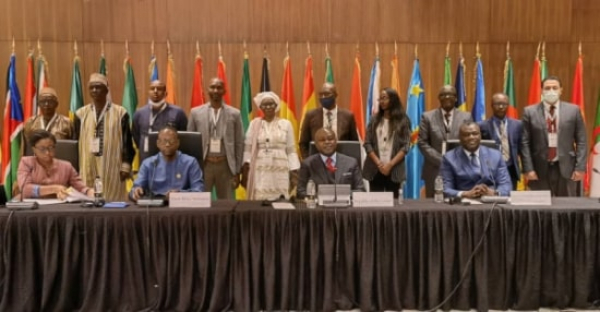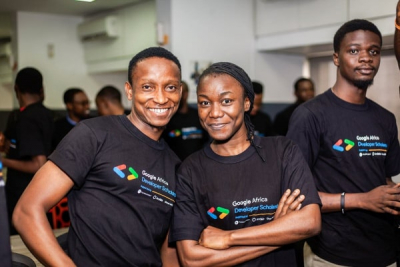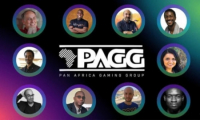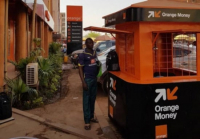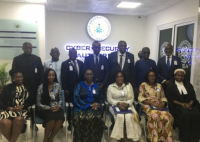
News (1792)
E-commerce company Jumia has unveiled plans to upgrade its payment solutions in Egypt and Nigeria, where it is the most active. In the first country, the company said it has reached an agreement with vaIU, a financial technology services company, to develop a solution that will allow its local customers to buy goods and pay for them over time (BNPL, Buy Now and Pay Later).
In its main market, Nigeria, Jumia said it has added new services to its payment app. “On the JumiaPay app, we continued adding more relevant everyday services. In Nigeria, we set up an integration with Quickteller, the largest billing aggregator in Nigeria. This partnership allows us to offer over 70 additional billers on the JumiaPay app, including Government services, internet service providers, airlines, and many more,” the company said.
To comply with the Central Bank's requirements, Jumia agreed to partner with a third-party payment service provider to process card transactions via JumiaPay. “This change, which is expected to take effect in March 2022, may temporarily affect the payment experience in Nigeria and negatively impact payment volumes on the platform,” Jumia warned.
JumiaPay's technology enabled the group, now listed on Nasdaq (the main U.S. tech stock market), to channel $263.3 million worth of payments for more than 12.1 million transactions. This represents 34.7% of overall customer payments, up from 33.1% a year earlier. The value of goods purchased through the Jumia platform approached $1 billion in 2021, up 3.21% compared to that of 2020.
Jumia continues to grow its customer base, which was nearly 4 million in 2021. The improvement of its payment systems and compliance with regulatory requirements are important steps in its development.
Building on the general-purpose e-learning platform -Atingi- that it launched in November 2020, Smart Africa has announced the launch of a new platform dedicated to technology and digital literacy.
On the sidelines of its 5th ICT Ministers’ Council held last February 25 in Kintélé, in the Republic of Congo, the Smart Africa Alliance announced the launch of its academy designed to improve the digital skills of Africans. The Smart Africa Digital Academy (SADA) offers free online courses accessible on https://sada.atingi.org/.
SADA's courses are focused on seven areas: digital skills and transformation, management and leadership, agriculture, career guidance, entrepreneurship, health, and governance and decentralization. Currently, three courses are already available on the platform. These are "Economic Foundations of Regulation" developed by Laurent Gille, economist, professor emeritus of Télécom Paris; "ICT Infrastructure" developed by UNESCO, Cetic.br/NIC.br and the SDG Academy; and "Dimensions and Causes of the Digital Divide" developed by GIZ and Atingi.
Smart Africa has also scheduled a webinar for September 22 to discuss the "Agile Regulation for Digital Transformation" in Africa. The workshop will feature Patrick Njoroge, the head of the Central Bank of Kenya, Anna Pietikainen, senior policy advisor at the OECD, Edmund Fianko, the deputy head of the National Communications Authority of Ghana, and Roslyn Docktor, director of government and regulatory affairs at IBM Corporation.
"The Smart Africa Digital Academy – SADA for short – provides the courses, webinars, and opportunities for exchange to policymakers and regulators to promote digital transformation in Africa. With its various learning programs and formats, SADA wants to improve participants’ skills for drafting inclusive, gender-sensitive, and climate-smart ICT regulations,” according to the information available on the Atingi platform.
“SADA also reaches a wider audience from entrepreneurs to engaged citizens to improve their digital literacy, so that they can fully benefit from the new potentials offered by digital technologies.”
SADA’s access platform is fully responsive and adapts to a variety of screen sizes, including desktop, tablet, and mobile. Training courses are available in English, French, German, Spanish, Arabic, Vietnamese, Mandarin, and Portuguese. Courses are downloadable.
Muriel Edjo
The Rwandan Parliament approved last February 21 the signing by the government of an €86.5 million loan agreement with the Asian Infrastructure Investment Bank (AIIB). Rwanda wants to accelerate the use of ICTs in public administrations. The agreement was presented in detail by the Minister of Finance, Uzziel Ndagijimana (pictured), and discussed with MPs.
“The aim is to promote the use of technology in development, increase service delivery, and use of big data. This will also enable the innovation agenda and increase job creation in technology but also attract investments. The fiber didn’t reach all areas but this time it will be expanded to reach sectors, more government offices, and other organizations including religious organs,” Ndagijimana said, stressing that the 28-year loan will also be used to provide subsidized access to technology equipment for government agencies. This will make public services faster, more transparent, and more efficient.
The project will be piloted by the Rwanda Information Society Authority (RISA).
Muriel Edjo
The startup environment in Africa has been booming in recent years. Investments attracted by this sector continue to grow steadily, but several regional and national weaknesses still prevent the continent from unlocking its full potential.
Over the past seven years, the lion's share of investment attracted by startups in Africa has been captured by the Anglophone region of the continent. In its "Francophone Africa. State of Technology and Investment" report published in May 2021, Briter Bridges – a research firm focused on data on innovation and technology ecosystems in emerging markets- revealed that of the $8.8 billion raised between 2015 and 2021, Francophone Africa only captured $417.9 million.
"Our interviews showed that lack of clarity around regulations, scarce capital pools, language barriers, and limited networking opportunities remain some of the greatest challenges to consider when entering the francophone African market," the research firm said. Also, the majority of poor performers for the World Bank’s 2020 Doing Business report were Francophones. Although the continent continues to experience a lack of qualified human resources, governments and several international partners are working to close the gap through digital skills development programs. This issue is, therefore, less of an obstacle to attracting investors, especially since startups can recruit from other countries if there is a real need.
However, in the absence of a credible business framework that fosters the emulation of entrepreneurs, investors will venture very little in markets where the risk of loss largely outweighs the chances of gain. Even if the innovative community seems dynamic, its ease to organize and create wealth will always prevail in the decision of businessmen, venture capital funds, and other business angels.
Senegal has demonstrated the positive impact of a regulatory framework tailored to technological innovation. In 2018, the country ranked 140th in the Doing Business. Senegalese startups attracted $6 million the same year, according to the Partech report on the level of funding attracted by startups in 2018.
In 2021, after the government passed a Startup Act, a law that facilitates the framework for creating, funding, and growing startups, Senegal's rank in Doing Business 2020 improved significantly to 123rd. The 2020 edition of Partech's report found that the credibility of its startup ecosystem has strengthened the interest of tech investors, who have invested $353 million.
According to the Tony Blair Institute for Global Change, “tech ecosystems drive economic growth. The digital economy will contribute an estimated $300 billion to African GDP by 2025, providing much-needed employment on a continent where three to four times more people enter the job market than actual roles are created."
In its report "Supercharging Africa's Startups: The Continent's Path to Tech Excellence" published on February 15, 2022, the research center estimates that African startups can raise $90 billion by 2030. It also emphasizes the creation of an appropriate business environment as one of the strategic reforms needed to avoid missing this opportunity.
Muriel Edjo
Africa had 716,000 professional developers in 2021, 3.8% more than in 2020. While this number continues to grow, demand has also reached a record level due to the growth in the hiring capacity of SMEs, which are more inclined to use technology.
Despite the challenges of the Covid-19 pandemic, Africa’s developer ecosystem is making progress. Google revealed, in its Developer Ecosystem Report 2021, that by 2021 the demand for web developers on the continent had reached a record high.
The report, published last February 21, attributes this increase in part to the rise in the use of Internet services by small and medium-sized enterprises (SMEs); an increase of 22%. This has forced them to hire more developers to help them grow their online businesses. In Africa, SMEs hire more than half of the local developers. In 2021, SMEs raised more than $4 billion, 2.5 times more than in 2020.
Outside the continent, the demand for African developers has also increased due to the development of the teleworking system fostered by Covid-19; 38% of African developers work for at least one company based outside the continent.
The number of professional developers grew by 3.8% in 2021. This is 0.4% of the continent's nonagricultural workforce. Nigeria alone produced 5,000 new professionals in 2021. Overall, the continent reached 716,000 professional developers in 2021, compared to 690,000 in 2020. Wages and salaries have also increased, and more developers have secured full-time jobs.
To meet the growing demand for developers, the report calls on global technology companies, local educators, and governments to strengthen the industry. This can be done by investing in both Internet access and education.
“Junior and emerging talent, as well as under-supported groups including women, need vocational training and affordable internet access to benefit from broader progress. Tech companies are making headway through local partnerships,” the document revealed.
The Africa Developer Ecosystem Report 2021 was produced through a study of 16 countries in sub-Saharan Africa: Algeria, Cameroon, Egypt, Ethiopia, Ghana, Ivory Coast, Kenya, Morocco, Mozambique, Nigeria, Rwanda, Senegal, South Africa, Tanzania, Tunisia, and Uganda. This report is the second in a series of studies on the state of the continent's Internet economy. The first, published in collaboration with the International Finance Corporation (IFC), found that Africa's Internet economy has the potential to reach 5.2% of GDP by 2025, contributing nearly $180 billion to the African economy. The projected potential contribution could reach $712 billion by 2050. “To reach this potential, we have to provide better access to high-quality, world-class skilling on mobile technologies platforms coupled with increasing connectivity in Africa. Our effort to increase connectivity is focused on infrastructure, devices, tools, and product localization,” said Nitin Gajria, Google MD for Africa.
Vanessa Ngono Atangana
Over the past five years, mobile money has become increasingly valuable in Africa. Today, it has become the largest payment tool in Africa. Its continent-wide interoperability has the potential to further unlock the potential of intra-African trade.
Digital payment gateway fintech MFS Africa announced on 16 February 2022 that it has joined the Pan African Payment and Settlement System (PAPSS). The PAPSS was launched in January 2021 by the African Continental Free Trade Area (AfCFTA).
According to the fintech, the partnership will enable its 320 million African mobile money customers to receive and make merchant payments in the 54 member-States of the AfCFTA.
Joining the PAPSS, according to Dare Okoudjou (pictured), founder and CEO of MFS Africa, translates a desire to further enrich this pan-African solution that "provides small and medium-sized enterprises (SMEs), entrepreneurs and merchants with easier access to formal payment services that will help them grow their businesses.”
In its "State of the Industry Report on Mobile Money 2021," the Global System Operators' Association (GSMA) said Africa was once again the champion in mobile payments with $490 billion exchanged on the continent compared to $767 billion globally. The number of mobile money accounts was 548 million on the continent compared to 1.2 billion globally.
“Africa is the global leader in mobile money services...This demonstrates how mobile money services play a key role in the continent's economic growth and facilitate financial inclusion,” said Mike Ogbalu III, CEO of PAPSS,
Adoni Conrad Quenum
African digital game production companies are now striving to develop a real industry on the continent. Ten of them, specializing in the production and marketing of video games, have announced the creation of an alliance - Pan African Gaming Group (PAGG) - for this purpose.
“We are creating a portfolio of mobile-first casual games that are fun, non-violent, and gender-inclusive. Our games are Made-In-Africa, For Africa, featuring African heroes wrapped in local culture, music, and environments. This allows our players to see themselves reflected in our games, which makes all the difference,” said Jake Manion, the project director.
The joint venture aims to strengthen the industry, creating more economic opportunities and jobs, sharing resources, skills, and access to markets to enable each member studio to create better games and reach more players. The goal is to position Africa on the map of the global games industry. The project targets the "400 million people connected in Africa with a smartphone," according to World Bank indicators. This opportunity is greater than that offered by Canada, the United States, and Mexico together. The promoters hope to reach a potential market of 680 million people by 2025. The global smartphone and computer gaming industry is attracting a lot of capital. According to Drake Star Partners, an investment bank specializing in financing the sector, $150 billion in new investments is expected in 2022. However, the share attracted by Africa in this capital remains low.
Among the founders of the PAGG is Olivier Madiba, a pioneer in Cameroon in the financing, production, and distribution of video games on computers and mobile phones. There are also leaders in the sector in countries like Kenya and Ghana.
French telecom group Orange launched in 2019 a plan - Engage 2025- to offer consumers a better experience. To achieve this goal in Africa, the company has partnered with Atos to rethink its business process on the continent.
The deal will see Atos - a company specializing in the provision of integrated solutions in the areas of cloud, cybersecurity, and supercomputing- support the digitalization of some of Orange's subsidiaries in Africa; 14 subsidiaries are targeted. Two contracts were signed to this effect last February 22 between the two parties. The objective is to significantly optimize Orange's operating expenses over the next five years, reduce its carbon emissions, and improve the group's operational resilience and business agility in the region.
The first contract requires Atos to support and maintain about 100 apps in key areas - such as billing, customer relationship management, business intelligence, big data, procurement, order entry, and management - across Orange subsidiaries. The contract also includes infrastructure management for four specific subsidiaries: Orange Burkina Faso, Orange Sierra Leone, Orange Cameroon, and Orange Madagascar. The same approach will be gradually applied to other subsidiaries in the region.
The second contract Orange signed with Atos is for the deployment of Orange Private Cloud - a dedicated cloud computing environment - in six subsidiaries (Burkina Faso, Botswana, Sierra Leone, Liberia, and the Democratic Republic of Congo). In these countries, Atos will also be able to support the integration of multi-vendor applications into Orange Private Cloud.
“We have ambitious digital transformation projects for our affiliates (Botswana, Burkina Faso, Cameroon, Central Africa, the Democratic Republic of Congo, Egypt, Guinea Bissau, Guinea Conakry, Ivory Coast, Jordan, Liberia, Madagascar, Mali, Morocco, Senegal, Sierra Leone, and Tunisia). Atos’ expertise in cloud services and business-critical application management, its deep knowledge of the telecom market, and its local presence in several countries in the Middle East and Africa make it a very valuable partner for Orange in the region,” says Jocelyn Karakula, CTIO, Orange Middle East & Africa.
The collaboration between Orange and Atos comes as part of the renewal of the CISA contract signed in 2017 by the two parties, but which covered only seven African subsidiaries. This new contract incorporates new innovative areas that fall within the scope of Atos, such as artificial intelligence and machine learning, cloud monitoring services and cloud orchestration, predictive maintenance, and intelligent automation.
Orange's new step aligns with one of its four growth ambitions for 2025, which is "to deliver a reinvented customer experience, smarter networks as well as improved operational efficiency."
Muriel Edjo
Ghana seeks to become the most cyber-secure country in Africa in the coming years. Speaking during the installation ceremony of the Board of Directors of the National Cybersecurity Authority last week, the country’s Minister of digitalization said “the government, within the last five years, has taken our cyber security development seriously.”
“The establishment of the Cyber Security Authority is one of the critical milestones achieved,” under this strategy, Ursula Owusu-Ekuful said. According to the International Telecommunication Union's (ITU) 2020 Global Cybersecurity Index report, Ghana ranked third in Africa and 43rd in the world based on the preparedness of the legislative and technical environment for cybercriminal attacks. With a score of 86.69/100, the country was better ranked than South Africa, which attracts the main foreign investment in digital technology, including data centers and optical fiber networks. The top 3 consists of Mauritius, Tanzania, and Ghana.
“We cannot simply sustain our digitalization efforts without cyber security. Cyber-attacks could undermine our gains in digitalization. It could undermine our social and economic well-being and consequently, our national security,” Ursula Owusu-Ekuful said.
Adoni Conrad Quenum
The DR Congo government has unveiled plans to digitize lease contracts. The strategy was launched last February 18 by Gentiny Ngobila Mbaka (pictured), governor of Kinshasa.
The government aims, through this plan, to create a database of rental properties so that it can easily identify both the owners and the tenants. This, in turn, will contribute to an efficient collection of rental property tax revenues.
The project will allow "the tax and financial service of the city of Kinshasa to monitor, in real-time, what the taxpayer has already paid. The city of Kinshasa, for its development, needs the participation of all Kinois (residents of Kinshasa, ed). The lease contracts are an important source of revenue because those subject to the tax on rental income are numerous and if they regularly paid this tax, the city would have the means of its policy," said the governor. The digitization project has been entrusted to the company Okab. The latter will provide the housing departments of the twenty-four communes of Kinshasa with the computer hardware and software necessary for the registration of rental contracts or books and the identification of lessors and tenants.
Ordinance-Law 69-006 of 10 February 1969 on the real tax of DR Congo stipulates in its "Chapter II: Taxpayers", Article 8, that "the property tax is due by the holder of the right of ownership, possession, emphyteusis, surface area, transfer, concession or usufruct of the taxable property, as well as by persons occupying, by a lease, real estate that is part of the private domain of the State, the provinces, the cities, and the communes, or of the assets of the districts."
Chapter III: Determination of the tax rate emphasizes in Article 13 that "an annual lump-sum tax is instituted as a property tax on built and unbuilt properties, the amount of which varies according to the nature of the buildings and the rank of the localities.”
Governor Gentiny Ngobila Mbaka pointed out that field teams in charge of digitizing lease contracts have already been trained and will soon be deployed first in the commune of Gombe which will serve as a pilot commune for the project.
Muriel Edjo
More...
Access to health care has relatively improved in Africa over the past decade. However much remains to be done. Initiatives are multiplying on the continent to bridge this gap.
Smart Africa, an alliance of 32 African countries and international organizations committed to the digital transformation of Africa, and The Commons Project Foundation (TCP) announced last February 16 a partnership to accelerate the delivery of digital health in Africa.
Through this collaboration, the members of both partners have committed to supporting and working on the design, development, deployment, and operation of digital public health infrastructure for Africans. They are also engaging in various digital health pilot projects aimed at strengthening African health systems.
One of the main focuses of the partnership is the SMART Health Card, which allows populations to securely share a verifiable version of their immunization record via a QR code. The innovation being implemented in Rwanda and Kenya is endorsed by the World Health Organization (WHO).
“We believe that the future of healthcare in Africa is digital-first, powered by mobility. This partnership will go a long way in delivering world-class health services to Africa’s citizens such as SMART Health Cards,” said Lacina Koné (pictured), CEO of Smart Africa.
Access to health care remains low in many African countries. The ratio of professionals per 10,000 inhabitants is still far below the WHO standards, which recommend a minimum of 23 health workers to ensure a basic quality of service. Digital technology comes as the solution for Africans to improve health care coverage. For Joe Mucheru, the Cabinet Secretary of Kenya's Ministry of ICT, Innovation, and Youth, the widespread adoption of digital health has the potential to revolutionize healthcare in the same way that the M-Pesa payment system has revolutionized financial inclusion.
Adoni Conrad Quenum
The fintech Maviance raises a new round of funding, less than a year after the last one, to pursue its expansion strategy. According to a Feb. 18 legal announcement, Finafrik Ltd, a private company based in London and specialized in the development of commercial software, has become a shareholder of Cameroonian fintech Maviance PLC. The latter is the owner of the digital payment platform Smobilpay.
Through this operation, the capital of Mavaince increases to CFA1.15 billion, up a little more than CFA140 million. This makes Finafrik a holder of 12.2% of the company's capital.
In May 2021, Maviance PLC had successfully closed a $3 million (about CFA1.6 billion) fundraising round with MFS Africa, a pan-African fintech operating the largest digital payments hub on the African continent. MFS Africa has become a "strategic investor" in Maviance, enabling it to finance its expansion across Cameroon and enter new Cemac markets.
Maviance claims it serves over 500,000 customers per month and connects key service providers, payment providers, financial institutions, and mobile money operators to its digital financial services platform.
Since January 2021, Nkwenti Leslie Azong-Wara has been serving as CEO for a three-year term. The engineer, who has a background in Siemens A.G., replaces Njinyam Setven Ngwa.
S.A.
The post-Covid economic recovery has increased competition in various industries, including air transportation. Only the most thriving businesses have a chance to remain profitable. To be part of this group, companies around the world, and mainly in Africa, have made digital transformation a priority. Air Senegal does not want to remain behind on the sidelines of this transformation. The airline signed a partnership with SmartKargo last February 16 to digitize its cargo service.
The deal will see Air Senegal deploy the SmartKargo solution in all functional areas of its cargo business, across its entire network of 22 destinations, including New York, Washington, and Paris, from its hub at Blaise Diagne International Airport.
The solution includes electronic air waybills (e-AWB), single screen data entries, user-configurable Business Intelligence (BI) and reporting, simple and more competitive pricing, and real-time capacity management. Ibrahima Kane, CEO of air Senegal, said: “the advanced SmartKargo platform will enable us to build and develop a new, modern and robust air cargo business. The fully digital solution is the best technology available and will propel Air Senegal forward by allowing us to grow our cargo business to its full potential.”
According to Air Senegal, the new platform will enable it to “transform its cargo business and successfully face the future with robust capabilities, cargo management solutions, and advanced technologies such as real-time information, business intelligence, and machine learning."
In its "passenger-it-insights-2020" report published in 2020, the International Air Transport Association (IATA) considered Covid-19 to be the most important stress test the airline industry has ever faced. IATA said a digital transformation was necessary for airlines to adapt to rapidly changing regulations, safety scenarios, and logistics.
Adoni Conrad Quenum
Investment in African tech startups has gradually improved over the past five years. However, the tech industry on the continent has the potential to attract much more. In its "Supercharging Africa's Startups: The Continent's Path to Tech Excellence" study released February 15, the Tony Blair Institute for Global Change estimates that African startups could raise more than $90 billion by 2030. To do this, the institute suggests 10 steps to follow:
- Establish a public data-sharing platform for tech startups
- Develop innovative financing vehicles
- Unleash capital from institutional and corporate investors
- Create a single digital market by prioritizing implementation of the AfCFTA
- Generate demand for local tech solutions
- Implement legislation to support tech startups and seek their regular feedback
- Improve digital skills
- Strengthen digital infrastructure
- Boost the capability of startups and support organizations
- Launch a “pan-African Startup Network”
The document found that “pre-pandemic, 22% of the working-age population had set up their own businesses. However, cumbersome regulations, the digital-skills gap, limited funding, and fragmented markets mean that Africa accounts for just 0.2% of the value of global startups.”
Although investment in African tech startups is still low compared to other regions, it has still seen a sharp increase over the past four years. In its "Africa's Investment Report 2021," Briter Bridge revealed that the amount reached $4.9 billion in 2021, 243% higher than 2020.
The "Lions go digital: The Internet's transformative potential in Africa" report by the McKinsey Global Institute estimated that the digital economy would contribute $300 billion to Africa's GDP by 2025, providing much-needed jobs on a continent where there are three to four times more people entering the labor market than actual jobs created. A favorable ecosystem for startups in Africa could make them future job providers for the youth who are increasingly becoming fans of technology.
Muriel Edjo



